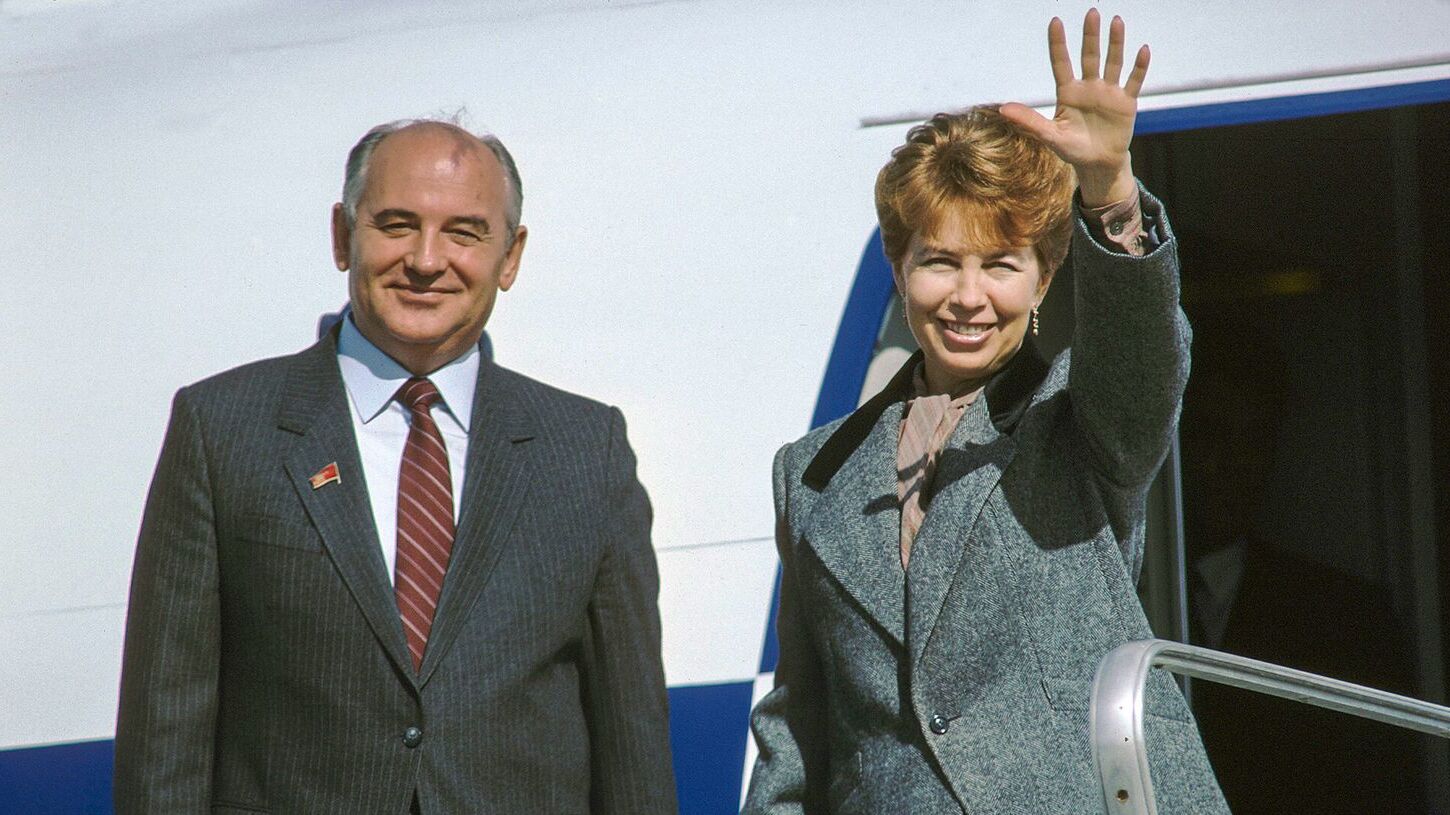
Raisa Gorbacheva was more than just the wife of the last Soviet leader, Mikhail Gorbachev. She was a sociologist, philanthropist, and a public figure who left a lasting impact on Soviet society. Born in 1932, Raisa Maximovna Titarenko grew up in a modest family but rose to prominence through her intelligence and determination. She played a significant role in her husband's political career, often seen by his side during pivotal moments in history. Her work in charity, particularly in children's health and education, showcased her compassion and dedication to improving lives. Raisa's elegance and intellect made her a beloved figure both in the Soviet Union and internationally. Her legacy continues to inspire many, reflecting a life dedicated to social change and humanitarian efforts.
Key Takeaways:
- Raisa Gorbacheva, the wife of the last Soviet leader, was a trailblazer who redefined the role of the First Lady, championed education and culture, and left a lasting legacy of compassion and dedication.
- Raisa Gorbacheva's life and work continue to inspire many, with her contributions to education, culture, and healthcare leaving a significant impact on Soviet and Russian society.
Early Life and Education
Raisa Gorbacheva, the wife of the last Soviet leader Mikhail Gorbachev, led a fascinating life. Her early years and education played a significant role in shaping her future.
- Raisa Maximovna Titarenko was born on January 5, 1932, in Rubtsovsk, a small town in Siberia.
- Her father, Maxim Andreyevich Titarenko, was a railway engineer, and her mother, Alexandra Petrovna Parada, was a homemaker.
- Raisa excelled in school, showing a keen interest in literature and the arts.
- She attended Moscow State University, where she studied philosophy and sociology.
- At university, Raisa met Mikhail Gorbachev, who would later become her husband and the leader of the Soviet Union.
Marriage and Family Life
Raisa and Mikhail Gorbachev's marriage was not only a personal union but also a partnership that influenced Soviet politics.
- Raisa and Mikhail married on September 25, 1953, while still students at Moscow State University.
- The couple had one daughter, Irina Mikhailovna Virganskaya, born in 1957.
- Raisa supported Mikhail throughout his political career, often accompanying him on official trips.
- She was known for her elegant style, which was a stark contrast to the typical image of Soviet leaders' wives.
- Raisa and Mikhail's relationship was marked by mutual respect and intellectual companionship.
Role as First Lady
Raisa Gorbacheva redefined the role of the First Lady in the Soviet Union, becoming an active and visible figure.
- She was the first Soviet First Lady to have a public profile and engage in social issues.
- Raisa often appeared in the media, discussing topics like education, culture, and social welfare.
- She established the Soviet Cultural Foundation in 1986 to preserve and promote Soviet cultural heritage.
- Raisa was involved in various charitable activities, including supporting children's hospitals and orphanages.
- Her visibility and activism were sometimes controversial, drawing both admiration and criticism.
Contributions to Education and Culture
Raisa's passion for education and culture led to significant contributions in these fields.
- She promoted the importance of education, believing it was key to the country's progress.
- Raisa supported the introduction of new educational programs and reforms in the Soviet Union.
- She was instrumental in the establishment of the Raisa Gorbacheva Club, which focused on cultural and educational initiatives.
- Raisa advocated for the preservation of historical monuments and cultural sites.
- Her efforts helped raise awareness about the importance of cultural heritage in Soviet society.
Health and Personal Struggles
Despite her public persona, Raisa faced personal challenges, including health issues.
- Raisa was diagnosed with leukemia in 1999, a battle she fought bravely.
- She sought treatment in Germany, where she received support from her family and the international community.
- Raisa's illness brought attention to the need for better healthcare and support for cancer patients in Russia.
- Despite her illness, Raisa remained active in her charitable work until her final days.
- Raisa Gorbacheva passed away on September 20, 1999, leaving behind a legacy of compassion and dedication.
Legacy and Impact
Raisa Gorbacheva's legacy continues to inspire many, both in Russia and around the world.
- The Raisa Gorbacheva Foundation was established in her memory to support cancer research and treatment.
- Her work in education and culture is remembered as a significant contribution to Soviet and Russian society.
- Raisa's public presence helped change the perception of women in Soviet politics.
- She is often credited with humanizing the image of the Soviet leadership during a time of significant change.
- Raisa's life and work continue to be studied and celebrated by historians and scholars.
Interesting Tidbits
Beyond her well-known achievements, there are many lesser-known facts about Raisa Gorbacheva that add depth to her story.
- Raisa was fluent in several languages, including English and French.
- She enjoyed classical music and often attended concerts and performances.
- Raisa was an avid reader, with a particular interest in Russian literature.
- She had a passion for gardening and spent time tending to her garden at the Gorbachev family home.
- Raisa was known for her love of fashion, often wearing clothes designed by Soviet and international designers.
Public Perception and Media
Raisa's relationship with the media and public opinion was complex and multifaceted.
- She was often portrayed in the Western media as a symbol of the new, more open Soviet Union.
- In Russia, public opinion about Raisa was divided, with some admiring her and others criticizing her visibility.
- Raisa's style and public presence were sometimes seen as too Western for traditional Soviet tastes.
- Despite the criticism, Raisa remained committed to her public role and continued her work with determination.
- Her legacy in the media is a testament to her impact on Soviet and Russian society, as well as her role in shaping the image of the Soviet leadership during a transformative period.
Raisa Gorbacheva's Lasting Legacy
Raisa Gorbacheva's impact on history remains significant. Her work in philanthropy, education, and women's rights continues to inspire many. As the wife of Mikhail Gorbachev, she played a crucial role during a transformative period in Soviet history. Her grace, intelligence, and dedication to social causes left an indelible mark.
Her efforts in raising awareness about leukemia and supporting medical research have saved countless lives. Raisa's advocacy for cultural exchange and intellectual freedom helped bridge gaps between the East and West. Her legacy lives on through the institutions and initiatives she championed.
Understanding Raisa Gorbacheva's contributions offers valuable insights into the complexities of the late 20th century. Her life serves as a reminder of the power of compassion and the importance of standing up for one's beliefs. Raisa's story continues to resonate, inspiring future generations to make a difference.
Frequently Asked Questions
Was this page helpful?
Our commitment to delivering trustworthy and engaging content is at the heart of what we do. Each fact on our site is contributed by real users like you, bringing a wealth of diverse insights and information. To ensure the highest standards of accuracy and reliability, our dedicated editors meticulously review each submission. This process guarantees that the facts we share are not only fascinating but also credible. Trust in our commitment to quality and authenticity as you explore and learn with us.


